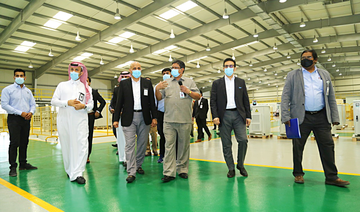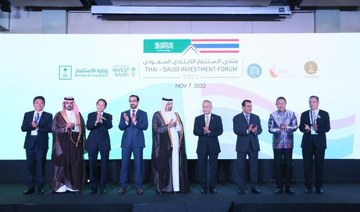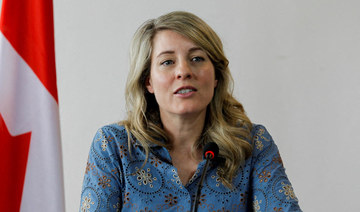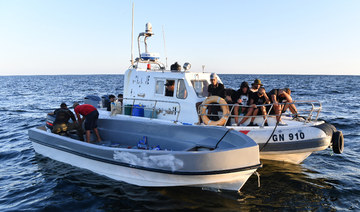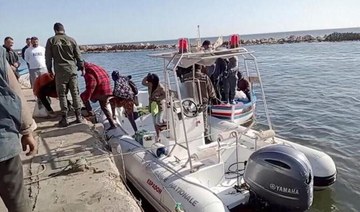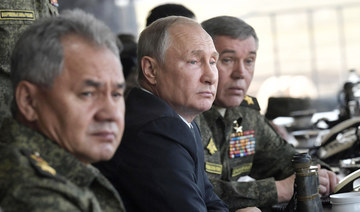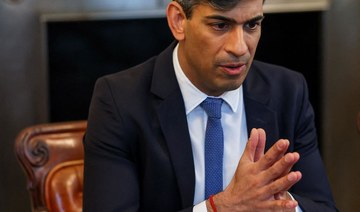BANGKOK: The war in Ukraine, great power rivalry Asia, inflation and food and energy shortages are on the agenda as leaders prepare for the third back-to-back gathering this week, a Pacific-Rim summit taking place in a heavily guarded venue in Thailand’s capital.
Leaders from the 21-member Asia-Pacific Economic Cooperation forum will meet formally in closed-door sessions Friday and Saturday. For some, it will be at least the third such opportunity for face-to-face talks in the past two weeks. However, US Vice President Kamala Harris is attending instead of President Joe Biden, who will be hosting his granddaughter’s wedding at the White House.
APEC’s official mission is to promote regional economic integration. Most of the business conducted happens on the summit’s sidelines in meetings such as a planned meeting between Chinese President Xi Jinping and Japanese Prime Minister Fumio Kishida.
The two Asian powers have a history of tense relations, a legacy of Japan’s World War II aggression compounded by territorial disputes and China’s growing military might. A Chinese Foreign Ministry spokesperson, Mao Ning, said the encounter would “carry great importance.”
Xi, Harris and French President Emmanuel Macron will also speak at a business conference held just ahead of the summit meetings that is mostly closed to media apart from outlets sponsoring the event.
The APEC meetings are being held in downtown Bangkok’s main convention center, which is cordoned off with some streets in the area completely closed to all traffic. Rows of riot police stood guard behind barbed wired barricades at a major intersection nearby, underscoring host Thailand’s determination to ensure the summit suffers no disruptions.
A small but noisy group of protesters scuffled briefly with police demanding to deliver a letter to leaders attending the summit. The demonstrators back various causes including demanding the removal of Prime Minister Prayuth Chan-ocha and abolition of Thailand’s strict royal defamation laws.
In recent years, Bangkok has seen a wave of large-scale protests aimed both at the government and at the powerful monarchy, though they have faded under the pressures of the pandemic and targeted arrests of key figures.
Before the summit, Thai officials said they were hoping to steer APEC toward long-term solutions in various areas, including climate change, economic disruptions and faltering recoveries from the pandemic.
“The APEC meeting this year takes place amidst a dual jeopardy. We need not be reminded of the severe security conflicts that know not what victory looks like. Meanwhile, the world is staring at the hyper inflation married to recession, a broken supply chain and scarcity and climate calamities,” Don Pramudwinai, Thailand’s foreign minister said in opening a meeting of foreign ministers and commerce ministers who were working on draft statements due to be issued after the summit.
Apparently alluding to Russia and recent condemnation of its war on Ukraine, he also said there was a growing “cancel mentality” that makes “any compromise appear impossible.”
US Secretary of State Anthony Blinken said in a tweet after the morning meeting that the ministers had “reaffirmed the need to work together to promote balanced, inclusive, and sustainable growth in the Asia Pacific region.”
APEC members account for nearly four of every 10 people and almost half of world trade.
“What we are going to do is to have all economies agree on a set of targets ... climate change mitigation, sustainable trade and investment, environmental resource conservation and, of course, waste management,” said Cherdchai Chaivaivid, director-general of Thailand’s Department of International Economic Affairs.
APEC’s official mission is to promote regional economic integration, which means setting guidelines for long-term development of a free trade area. Most of its work is technical and incremental, carried out by senior officials and ministers, covering areas such as trade, tourism, forestry, health, food, security, small and medium-size enterprises and women’s empowerment.
Leaders from the 21 economies on both sides of the Pacific Ocean often take the opportunity to conduct bilateral talks and discuss side deals. The Latin American contingent comes from Chile, Mexico and Peru. Other members are Australia, Brunei, Canada, China, Hong Kong, Indonesia, Japan, Malaysia, New Zealand, Papua New Guinea, the Philippines, Russia, Singapore, South Korea, Taiwan, Thailand, the United States and Vietnam.
Russian President Vladimir Putin has been avoiding international forums where he would be showered with criticism over the invasion of Ukraine and will not attend.
That leaves Chinese leader Xi as the star attendee in Bangkok, where he also is making an official visit to Thailand just after obtaining a rare third term as top leader at a once-in-five years Communist Party congress.
Biden is giving ground to China in the competition for friends and influence in Southeast Asia by skipping the APEC meetings. But US officials say Washington has demonstrated its seriousness in relations with the region through frequent visits by Cabinet members including Secretary of Defense Lloyd J. Austin III and other key senior officials.
As host, Thailand invited three special guests to the meeting: the French president Macron; Crown Prince Mohammed bin Salman, the prime minister of Saudi Arabia, and Cambodian Prime Minister Hun Sen, who was to represent the Association of Southeast Asian Nations but will not attend after getting COVID-19.
For Thai Prime Minister Prayuth Chan-ocha, the most welcome visitor may well be the Saudi leader, whose visit may help restore friendly relations they soured due to a theft of Saudi royal jewelry in 1989 and unsolved murders of Saudi diplomats in Bangkok.
The war in Ukraine is a challenge for APEC’s consensus-oriented efforts. None of the earlier APEC meetings this year issued statements due to disagreements over whether to mention the conflict.
Like Indonesia, which hosted the Group of 20 summit in Bali this week, and Cambodia, which hosted the ASEAN meetings, Thai officials have put the best possible face on the situation, contending that agreement on other points will allow APEC to move forward regardless.
Skeptics doubt the meeting will accomplish much.
“This APEC is only a photo opportunity for leaders. Its agenda has drawn much less attention than the ASEAN summit and G-20,” Virot Ali, a political scientist at Thailand’s Thammasat University, told The Associated Press.
“I don’t think we will see any progress from APEC. The current geopolitics, trade war, COVID-19, and Russia-Ukraine war are the issues that people are paying more attention to and feeling more impact from,” he said.
Asia-Pacific leaders tackle trade, sustainability in Bangkok
https://arab.news/mze5b
Asia-Pacific leaders tackle trade, sustainability in Bangkok
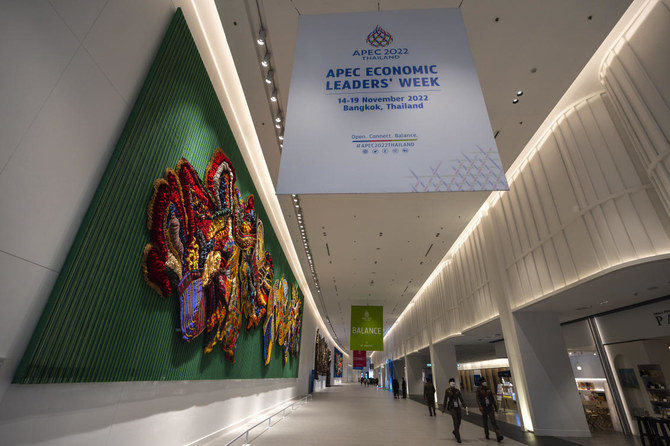
- APEC’s official mission is to promote regional economic integration
- A small but noisy group of protesters scuffled briefly with police demanding to deliver a letter to leaders attending the summit
Canadian police charge 2 former UN employees with conspiracy to sell military equipment in Libya

- Poirier said Mhaouek, a Canadian citizen, was arrested Tuesday morning at his home in the Montreal suburb of Ste-Catherine, Que., and was scheduled to appear in a Montreal court later in the day
MONTREAL: Two former United Nations employees in Montreal have been charged with participating in a conspiracy to sell Chinese-made drones and other military equipment in Libya, Canadian police said Tuesday.
RCMP spokesman Sgt. Charles Poirier said the alleged offenses occurred between 2018 and 2021, when the two men were working at the International Civil Aviation Organization, a UN agency headquartered in Montreal.
Police identified the two men as Fathi Ben Ahmed Mhaouek, 61, and Mahmud Mohamed Elsuwaye Sayeh, 37. Poirer said they violated UN sanctions related to the Libyan civil war. The sanctions have the force of law in Canada by way of federal regulation.
“What we found is that through some shell companies, they attempted to sell this Chinese military equipment to Libya, which is a direct violation of the regulation,” Poirier said, adding that the military equipment included large drones that can carry multiple missiles.
Poirier said the regulation prohibits anyone in Canada from supplying military equipment to any of the factions that were fighting in the Libyan civil war, or helping to finance those groups. The alleged conspiracy, he said, would have benefited one of the two main factions in the conflict, which ended in 2020.
“The second part of this scheme was to export Libyan oil to China,” Poirier said. “So at the time, the oil fields were under the control of Gen. Khalifa Haftar and the plan was to sell millions of drums of crude oil to China without anyone knowing about it.”
Haftar’s self-styled Libyan National Army fought against Libya’s UN-backed government and held much of the country’s east during the civil war; he continues to be a powerful figure in that region.
Poirier said Mhaouek, a Canadian citizen, was arrested Tuesday morning at his home in the Montreal suburb of Ste-Catherine, Que., and was scheduled to appear in a Montreal court later in the day.
Mhaouek’s alleged accomplice remains on the run. An Interpol red notice — an alert sent to police around the world — and a Canada-wide warrant have been issued for Sayeh’s arrest.
Poirier said investigators have no indication that military equipment or crude oil ever reached their alleged final destinations, but he said if they had, the two co-conspirators stood to gain several million dollars in commissions.
“The theory behind the motivation is primarily financial,” he said. However, it would have also benefited China by allowing it to covertly support Haftar’s faction and by giving the country prime access to Libyan oil.
Poirier said the investigation began in 2022 after the RCMP received what he described as “credible intelligence.”
Both men had diplomatic immunity due to their work with the UN Their immunity had to be waived by ICAO before the two men could be charged.
The UN organization, which sets international aviation standards, has been collaborating with the police investigation.
“There’s no indication that ICAO was aware of the conspiracy until they were approached by us,” Poirier said.
Police don’t know where Sayeh, a Libyan national, may be.
“He could be in Libya, but with the level of influence and the networking that these men had working at ICAO, he could be anywhere,” Poirier said.
The UN’s civil aviation agency said in an emailed statement that it is committed to upholding Canadian laws, UN standards and its own ethics code.
“ICAO is fully cooperating with the RCMP investigation of the individuals involved in the complaint, who left the organization a number of years ago,” the agency said. “ICAO strongly condemns any actions of individuals that are inconsistent with the organization’s values.”
Rights concerns, costs undermine Turkiye-EU migrant deal, say auditors
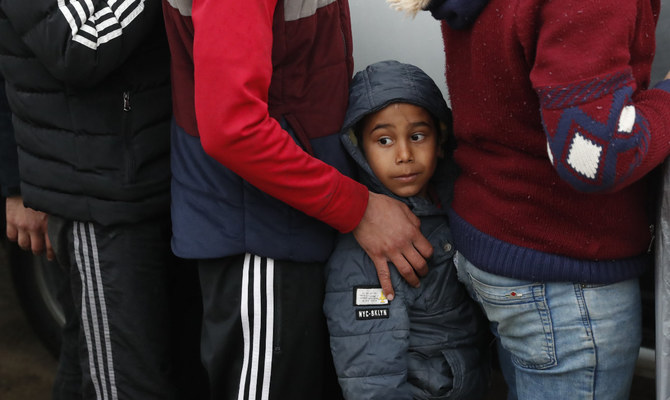
- EU Ombudsman Emily O’Reilly has launched an inquiry into human rights guarantees under the bloc’s new migration deal with Tunisia
BRUSSELS: Turkiye’s poor human rights record and economic factors are undermining the effectiveness of the European Union’s migration deal with Ankara, EU auditors said on Wednesday.
Under the 2016 deal, Ankara agreed to take back migrants who had crossed from its territory to Europe in return for EU aid to help fund more than four million refugees on Turkish soil.
The EU, which faces elections in June for the European Parliament in which illegal migration promises to be a big issue, has sealed agreements similar to the Turkiye scheme with Tunisia, Egypt, Mauritania and others.
In their report, the EU auditors raised concerns about the ability of non-governmental organizations (NGOs) to operate projects, as envisaged under the 6 billion euro ($6.4 billion) deal, given Turkiye’s authoritarian turn since a failed coup in 2016 and its crackdown on dissent.
“The operating situation of NGOs has continuously deteriorated since 2015 and has been exacerbated in the context of the unsuccessful... coup in Turkiye, where NGOs subsequently were targeted through various legislation,” it said.
The European Court of Auditors (ECA) report also cited the difficulty of managing the EU aid in the context of Turkiye’s economic downturn and Ankara’s “backsliding on the rule of law and fundamental rights.”
The report said the European Commission, the EU’s executive, had failed to provide an adequate analysis of costs and that it was unclear what would happen once the aid ended.
“The facility is beneficial for refugees and host communities but we would still like to see improvements in terms of demonstrating impact, ensuring sustainability, and value for money,” said Bettina Jakobsen, who led the ECA report.
Rights groups and some politicians have long accused the EU of neglecting human rights in its drive to curb illegal migration.
“This leads to the EU focusing less on issues that should be of relevance such as the neglect of human rights,” said Florian Trauner, a professor at the Brussels School of Governance.
EU Ombudsman Emily O’Reilly has launched an inquiry into human rights guarantees under the bloc’s new migration deal with Tunisia.
US, Russia set for a showdown at UN over nuclear weapons in space
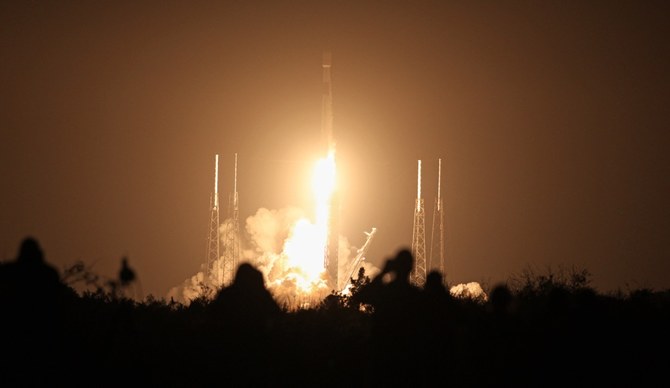
- The White House says Russia has not yet deployed such a weapon.
UNITED NATIONS/WASHINGTON: The United States and Russia are set to face off over nuclear weapons in space on Wednesday at the United Nations Security Council, which is due to vote on a US-drafted resolution calling on countries to prevent an arms race in outer space.
Russia is expected to block the draft resolution, said some diplomats. The US move comes after it accused Moscow of developing an anti-satellite nuclear weapon to put in space, an allegation that Russia’s defense minister has flatly denied.
US Ambassador to the UN Linda Thomas-Greenfield and Japan’s UN Ambassador Yamazaki Kazuyuki said in a joint statement on Friday that they have been negotiating with Security Council members on the draft text for six weeks.
The text affirms the obligation of states to comply with the Outer Space Treaty and calls on countries “to contribute actively to the objective of the peaceful use of outer space and of the prevention of an arms race in outer space.”
The 1967 Outer Space Treaty bars signatories – including Russia and the United States – from placing “in orbit around the Earth any objects carrying nuclear weapons or any other kinds of weapons of mass destruction.”
Russia and China are planning to first put an amendment to a vote in the council. The amendment echoes a 2008 proposal by the pair for a treaty banning “any weapons in outer space” and threats “or use of force against outer space objects.”
The amendment is not expected to be adopted, said diplomats. The amendment and the draft resolution each require at least nine votes in favor and no vetoes by Russia, China, the United States, Britain or France to be adopted.
“Without our amendment, based on the General Assembly resolution adopted in December 2023, the text tabled by the US will be unbalanced, harmful and politicized,” deputy Russian UN Ambassador Dmitry Polyanskiy told Reuters, adding that it would also undermine the Outer Space Treaty legal regime.
Polyanskiy said “all questions relating to this sphere should be considered by the full membership of States Parties to this Treaty and not by the UN Security Council members only.”
US intelligence officials, according to three people familiar with their findings, believe the Russian capability to be a space-based nuclear bomb whose electromagnetic radiation if detonated would disable vast networks of satellites.
White House National Security Council spokesman John Kirby has said Russia has not yet deployed such a weapon.
Russian President Vladimir Putin said in February that Russia was against the deployment of nuclear weapons in space.
Governments have increasingly viewed satellites in Earth’s orbit as crucial assets that enable an array of military capabilities on Earth, with space-based communications and satellite-connected drones in the war in Ukraine serving as recent examples of the outsized role of space in modern warfare.
Russia invaded neighboring Ukraine in February 2022.
Google fires at least 20 more workers who protested its $1.2bn contract with Israel
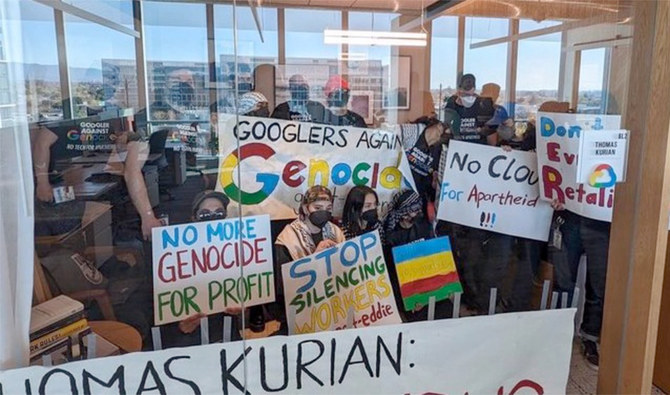
NEW YORK: Google fired at least 20 more workers in the aftermath of protests over technology the company is supplying the Israeli government amid the Gaza war, bringing the total number of terminated staff to more than 50, a group representing the workers said.
It’s the latest sign of internal turmoil at the tech giant centered on “Project Nimbus,” a $1.2 billion contract signed in 2021 for Google and Amazon to provide the Israeli government with cloud computing and artificial intelligence services.
Workers held sit-in protests last week at Google offices in New York and Sunnyvale, California. The company responded by calling the police, who made arrests.
The group organizing the protests, No Tech For Apartheid, said the company fired 30 workers last week — higher than the initial 28 they had announced.
Then, on Tuesday night, Google fired “over 20” more staffers, “including non-participating bystanders during last week’s protests,” said Jane Chung, a spokeswoman for No Tech For Apartheid, without providing a more specific number.
“Google’s aims are clear: the corporation is attempting to quash dissent, silence its workers, and reassert its power over them,” Chung said in a press release. “In its attempts to do so, Google has decided to unceremoniously, and without due process, upend the livelihoods of over 50 of its own workers.”
Google said it fired the additional workers after its investigation gathered details from coworkers who were “physically disrupted” and it identified employees who used masks and didn’t carry their staff badges to hide their identities. It didn’t specify how many were fired.
The company disputed the group’s claims, saying that it carefully confirmed that “every single one of those whose employment was terminated was personally and definitively involved in disruptive activity inside our buildings.”
The Mountain View, California, company had previously signaled that more people could be fired, with CEO Sundar Pichai indicati ng in a blog post that employees would be on a short leash as the company intensifies its efforts to improve its AI technology.
Britain’s home secretary touts UK-Rwanda migrant deportation deal during visit to Italy
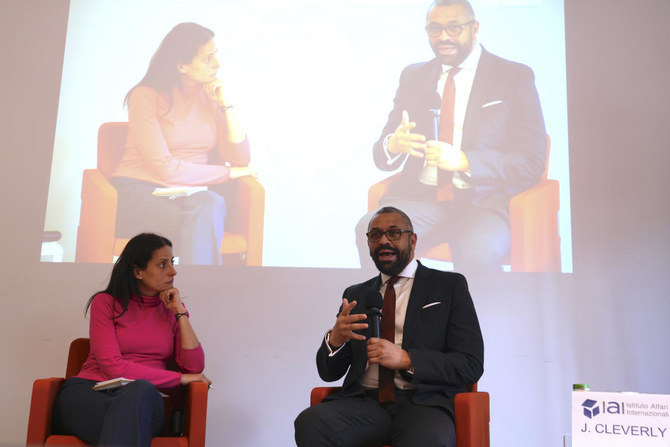
- Deal, in which Britain will pay Rwanda to process the migrants, is aimed at deterring people from crossing the English Channel from France
- It is similar in some basic aspects to Italy’s controversial pact to outsource the processing of asylum-seekers to Italian-run centers in Albania
ROME: Britain’s home secretary on Tuesday touted Britain’s migrant deportation deal with Rwanda as a “new and creative” deterrent to an old and growing problem. But he said he took seriously criticism by the UN refugee agency that it violates international law.
Home Secretary James Cleverly visited Italy, ground zero in Europe’s migration debate, hours after the UK Parliament approved legislation to enable the government to deport some people to Rwanda who enter Britain illegally.
The deal, in which Britain will pay Rwanda to process the migrants, is aimed at deterring people from crossing the English Channel from France. It is similar in some basic aspects to Italy’s controversial pact to outsource the processing of asylum-seekers to Italian-run centers in Albania.
Human rights groups have said both deals, forged by conservative governments amid anti-migrant sentiment among voters, violate the rights of migrants that are enshrined in international refugee conventions.
On Tuesday, the UN High Commissioner for Refugees said the UK-Rwanda deal is “not compatible with international refugee law” because it uses an asylum model “that undermines global solidarity and the established international refugee protection system.”
Cleverly defended the deal as a necessary response to a problem that has outgrown the international institutional way of processing migrants. He said Britain will not tolerate people smugglers determining who arrives on British soil.
“People-smuggling mass migration has changed (and) I think demands us to be constantly innovating,” he told a gathering at the Institute of International Affairs, a Rome-based think tank.
He said he took seriously the UNCHR criticism and said Britain was a law-abiding country.
“Of course we will respect the UN enormously,” he said when asked about the UNHCR criticism. “We take it very, very seriously. Doesn’t mean to say we always agree with their assessment. But we will, of course, look at that.”
Cleverly visited the Italian coast guard headquarters on Tuesday and on Wednesday is to visit the Sicilian island of Lampedusa, where tens of thousands of migrants have arrived after crossing the Mediterranean Sea on boats setting off from northern Africa.
Lampedusa is closer to Africa than the Italian mainland and is often the destination of choice for migrants, whose numbers reached 157,652 new arrivals in Italy last year.
The numbers arriving in Italy so far this year are actually way down, presumably thanks to Italy’s European Union-endorsed agreement with Tunisia to stem departures. As of Tuesday, 16,090 migrants had arrived by sea in Italy so far this year, compared to 36,324 in this period last year.
Spain has actually outpaced Italy so far this year in terms of migrant sea arrivals, with 16,621 arriving this year as of April 15, the last available date.
In Britain, the numbers pale in comparison to the southern Mediterranean, even during peak periods: In 2022, the number of people arriving in Britain from across the Channel reached 45,774, though last year the number dropped to 29,437.



